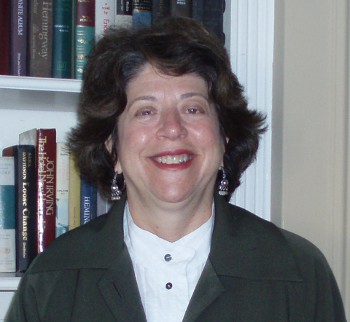Betsy Wolkin, Attorney At Law
Betsy Wolkin
Criminal Attorney
Betsy grew up in the Philadelphia suburbs and attended public schools in the late 60’s. She studied at Hamilton College in Clinton, New York for 2 years and then dropped out of school. She moved to California where things were happening politically. She was interested in the women’s movement and ending the war. After working at a series of office jobs for several years and traveling during the summers, Betsy went back to school. Not knowing what she wanted to do other than help people, she majored in Sociology, Political Science and earned a BA Degree from San Francisco State University
“I always thought that I would do something that had to do with helping people. It then became apparent that as a woman, I would have more power and choices helping people if I became a lawyer.” She got a Law Degree from the University of California, Hastings College of Law.
Before she went into private practice, she worked for the Public Defenders office in San Francisco for 8+ years where she handled many cases from drunk driving to homicide.
Betsy said that she chose to be a criminal attorney because it is a continuous adventure. “I knew that I had strong people and verbal communication skills. Plus, I wanted to have real people as clients as opposed to working for corporate clients. I was inclined to the under represented and/or underdog litigant. I wanted to be in court and talk and be in a constantly changing environment.”
Betsy says a criminal attorney meets with prospective clients, interviews them and does an assessment of “who is this person?” before taking a case. She says “It is important to cultivate trust with your client in the beginning. You are meeting people who are under extreme stress, recently arrested, incarcerated or wanted by the authorities.” Betsy says “You need to get the person to speak to you very frankly in a very short period of time about something they have done or been involved in that is often embarrassing, humiliating, appalling or frightening.” Depending on what stage the case is in, the next step is a thorough independent investigative process. This can involve forensic analysis, psychologist, and/or psychiatrists to evaluate the present condition of your client, private investigators, etc. And then ultimately you go to court.
Betsy says that her law school education prepared her to be an analytical thinker, developed deductive reasoning and analytical skills, and a linear approach to problem solving but did not prepare her for the actual practice of law.
She feels the biggest work related challenge she faces is to bring something “fresh” to each case and to resist becoming cynical. In addition the job can be very stressful because it is unpredictable.
The career is rewarding in that “…it is full of surprises, never gets boring.” She likes making sure the Constitution works. Betsy says that “There is a satisfaction in having the ability to bring your skills and knowledge to help someone who is usually disadvantaged in the system.”
Betsy sees the keys to success in this field as “…hard work, good people skills, intuitive sense of people, intelligence and confidence in your self and your
presentation skills.”
Betsy sees 3 changes that have taken place in her field which have affected criminal defense work significantly: 1) the expectation of jurors that scientific evidence will be presented because of crime dramas like CSI on TV today, 2) lengthening of the period of time that the government has to institute prosecutions and 3) increased state and federal prison sentences for violent and non-violent crimes.
Betsy favors pants and jackets in court with low heeled shoes for comfort. She says “you can be on your feet for long periods of time and need to carry a lot of materials when going to court.”
In her spare time she loves to read, go to the theatre and travel.

